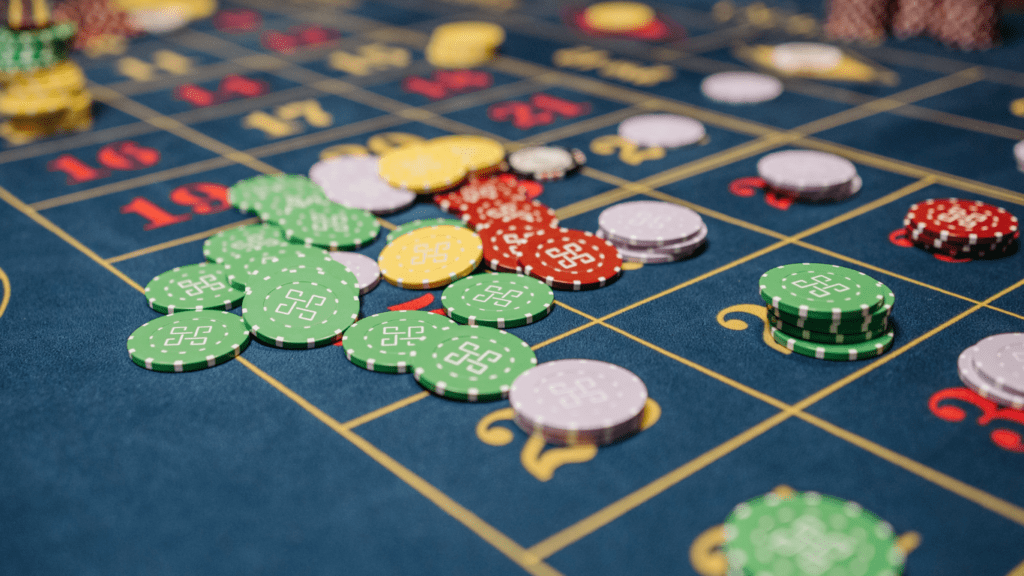Understanding the Basics of Gameplay
Grasping basic gameplay elements sets the stage for more complex strategies. Knowing the rules provides a foundation. Familiarize yourself with the core objectives of the game, whether it’s capturing territories, solving puzzles, or defeating opponents. This understanding influences strategy.
Movement in games often involves navigating a character or piece. Mastering this aspect allows precise positioning, which can give you an early advantage. The efficiency of your movements affects your gameplay outcomes.
Resources, like in-game currency or power-ups, play a crucial role. Effective management ensures your character or team remains competitive, especially when resources are limited. Balancing resource usage keeps you in the game longer.
Also, the timing of your actions can impact success. Executing the right move at the right moment often creates opportunities for victory. Timing often distinguishes a good player from a great one. Knowing when to act is as important as knowing how to act.
Adjusting to your game’s pace helps maintain control. Some games require quick reflexes, while others demand strategic deliberation. Adaptability in gameplay style enhances your overall skill level and prepares you for diverse challenges.
By building a solid understanding of basic gameplay aspects, including rules, movement, resources, timing, and pace, players can better position themselves for success.
Importance of Strategy in Gaming
Strategy plays a critical role in gaming, helping players secure consistent victories. Understanding strategic elements lets players outsmart opponents rather than rely on mere luck.
Developing a Winning Plan
Creating a robust plan involves analyzing game mechanics and identifying opportunities. I focus on dissecting opponents’ tactics to anticipate their moves and set traps effectively. Constant practice sharpens these skills, letting me fine-tune strategies for different game scenarios. It’s essential to consider resource allocation and timing, ensuring each action aligns with the overall plan.
Adapting to Different Game Scenarios
Flexibility proves key in dynamic gaming environments. I pay attention to how the game evolves, adjusting strategies to counter new challenges. Observing opponents’ weaknesses offers avenues to exploit with alternative tactics. Each game presents unique scenarios, and being able to switch strategies swiftly maintains the competitive edge.
Expert Tips for Enhancing Skills

Improving gameplay involves more than just practicing; it requires strategic thinking and understanding of game dynamics. Here are some expert tips to elevate your skills and enhance your gaming performance.
Mastering Game Mechanics
- Understanding game mechanics forms the backbone of a player’s skill set.
- I study each game’s unique rules to uncover advanced tactics.
- Primitive elements like movement, resource management, and timing become powerful tools when fully mastered.
- By grasping these mechanics, I set a solid foundation for executing strategies that outmatch opponents.
- Practice allows me to naturally integrate these elements into my gameplay, making my moves efficient and effective.
Utilizing Game Analytics
Leveraging game analytics boosts my strategic depth. I analyze performance data, which offers insights into personal strengths and weaknesses. By examining win-loss ratios and common patterns, I identify areas for improvement. I also study opponent trends to predict their actions, giving me a competitive edge. Using analytics optimizes my learning process, enabling focused and measurable skill enhancement.
Psychological Insights for Success
Understanding the psychological aspects of gameplay enhances strategy and decision-making. Using insights for mental preparation boosts success.
Managing Stress and Anxiety
Controlling stress improves decision-making. Planning for breaks during gameplay prevents fatigue-related mistakes. Practicing mindfulness techniques, like deep breathing, maintains focus in high-stakes situations. Recognizing stress triggers helps in developing personalized coping mechanisms, promoting a calmer gaming experience. Avoiding tilt, the emotional spiral of frustration, preserves mental clarity and tactical thinking.
Building Confidence
Developing a strong mindset enhances gameplay performance. Reviewing past successes boosts confidence and provides motivation. Setting realistic goals creates a sense of achievement as each target is met. Practicing consistently builds competence, transforming skills into second nature. Adopting a positive attitude, even in losses, reinforces resilience and invites growth opportunities.
Tools and Resources for Smarter Gameplay
Leveraging the right tools enhances strategic gameplay significantly. I rely on various software and community platforms to stay ahead.
Recommended Software and Apps
Using specialized software improves game analysis and strategy development. I find these tools invaluable:
- Hearthstone Deck Tracker: Helps track card history and win rates in card games.
- Mobalytics: Provides in-depth analytics for MOBAs like League of Legends.
- Replay Analysis Software: Tools like Overwolf offer video replays for performance evaluation.
- Game Training Apps: Aim Lab enhances shooting accuracy in FPS games through targeted exercises.
Each software serves unique purposes, complementing specific game algorithms and player styles.
Community and Networking Opportunities
Connecting with fellow gamers opens up new strategies and insights. I actively participate in these communities:
- Gaming Forums: Websites like Reddit and GameFAQs host discussions on tactics and experiences.
- Social Media Groups: Platforms like Discord and Facebook offer spaces for real-time interaction.
- Esports Networks: Organizations like ESL facilitate tournaments and player meet-ups.
- Mentorship Programs: Guilds and clans mentor newcomers, helping them learn from experienced players.
By engaging with these communities, I continually expand my knowledge and adaptability, crucial for maintaining a competitive edge.



 _____
Bruce Myron – Content Specialist & Myth Buster
Bruce Myron is the storyteller at Play Gambler Cash, specializing in debunking gambling myths and providing clear, accessible insights for the community. With a knack for simplifying complex topics, Bruce ensures that players are equipped with the right knowledge to avoid common pitfalls and maximize their enjoyment.
_____
Bruce Myron – Content Specialist & Myth Buster
Bruce Myron is the storyteller at Play Gambler Cash, specializing in debunking gambling myths and providing clear, accessible insights for the community. With a knack for simplifying complex topics, Bruce ensures that players are equipped with the right knowledge to avoid common pitfalls and maximize their enjoyment.